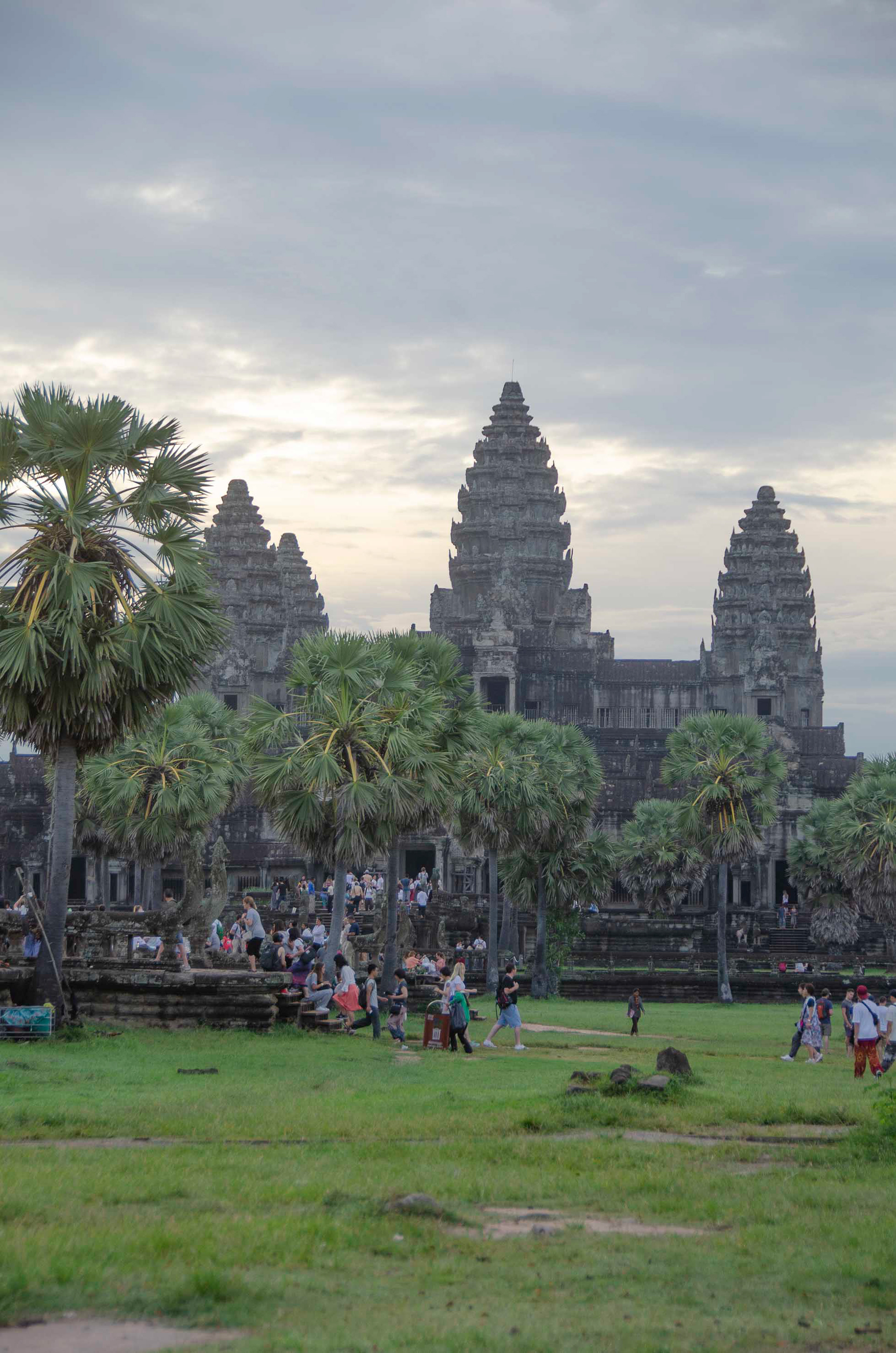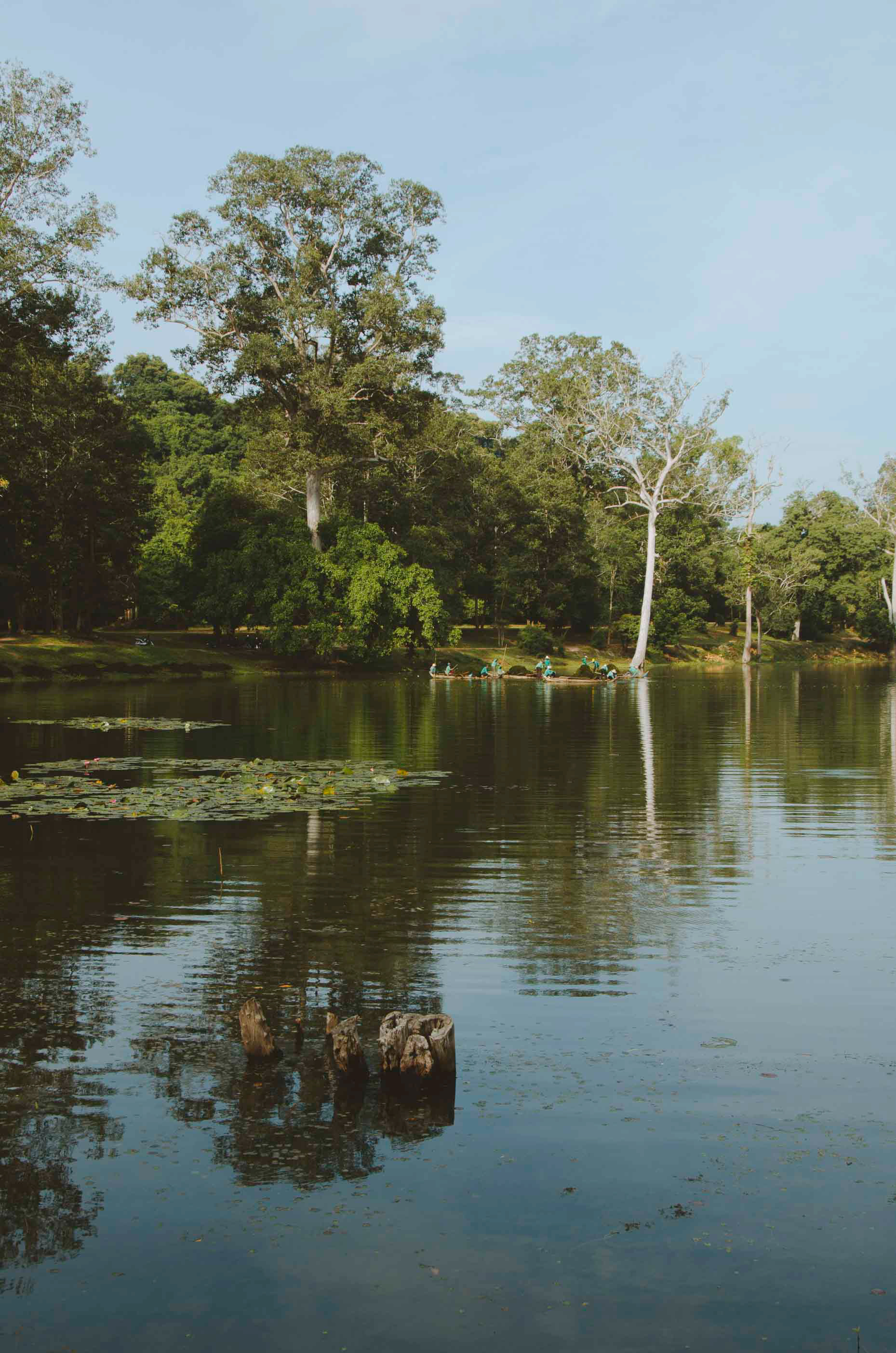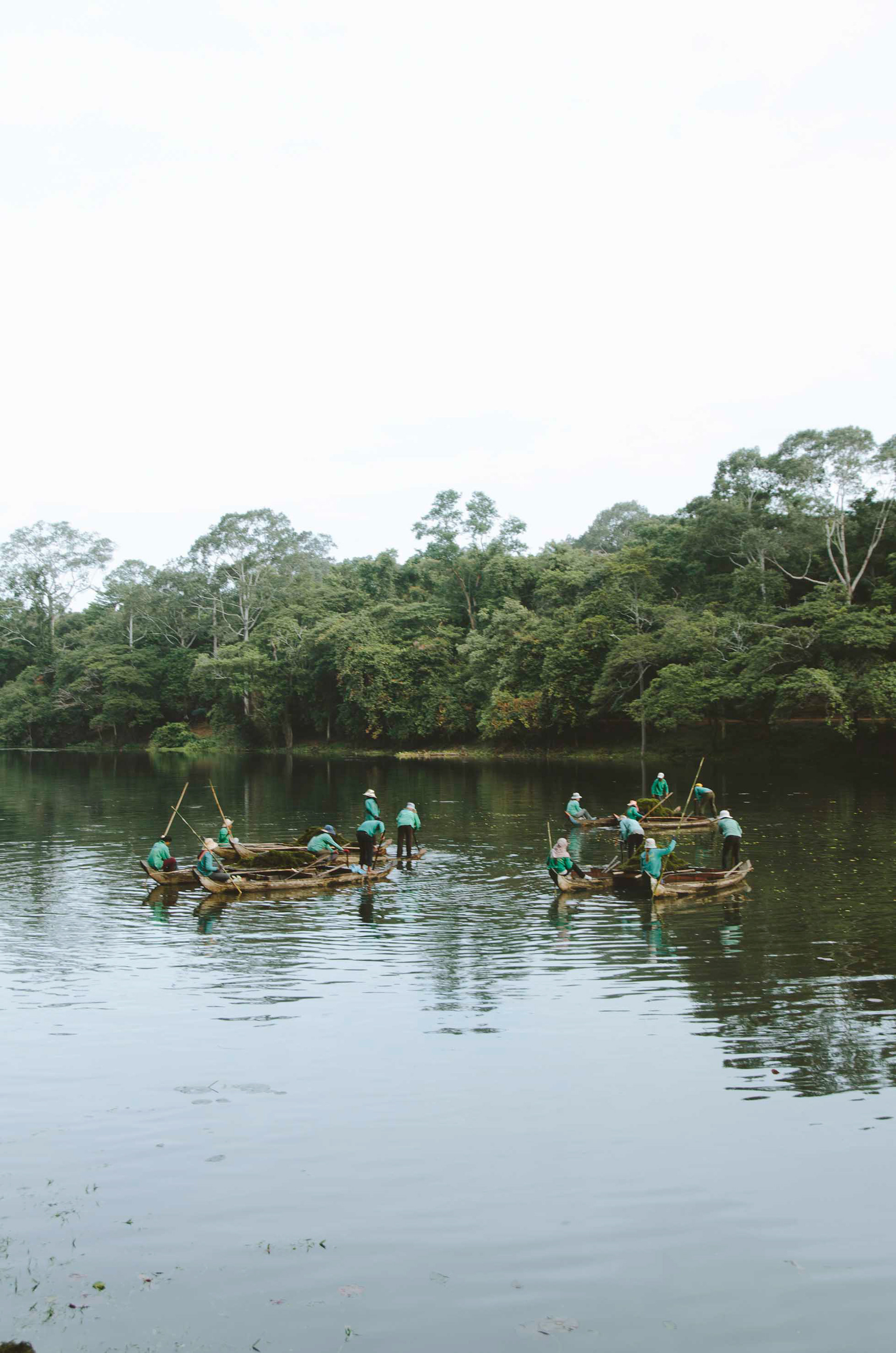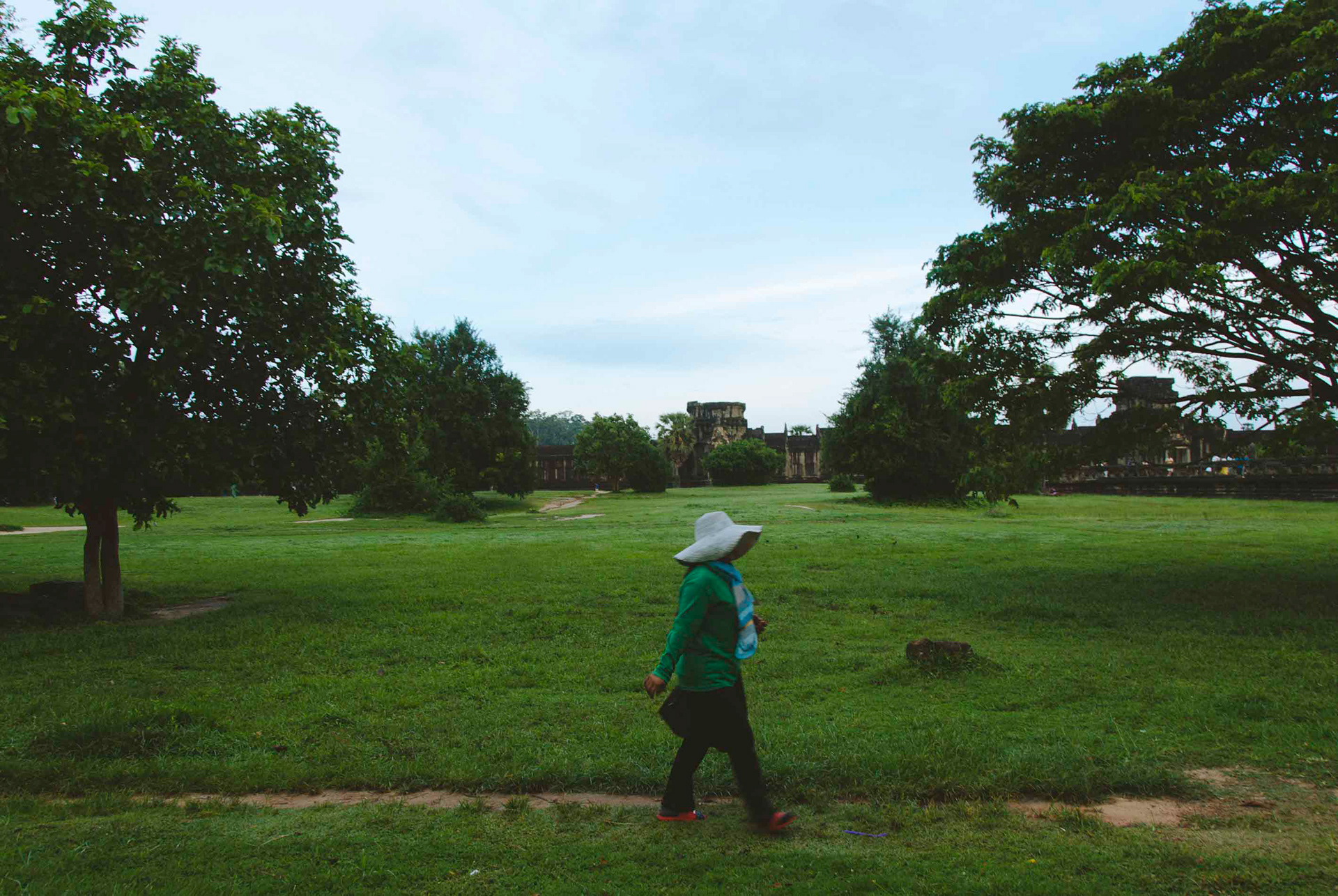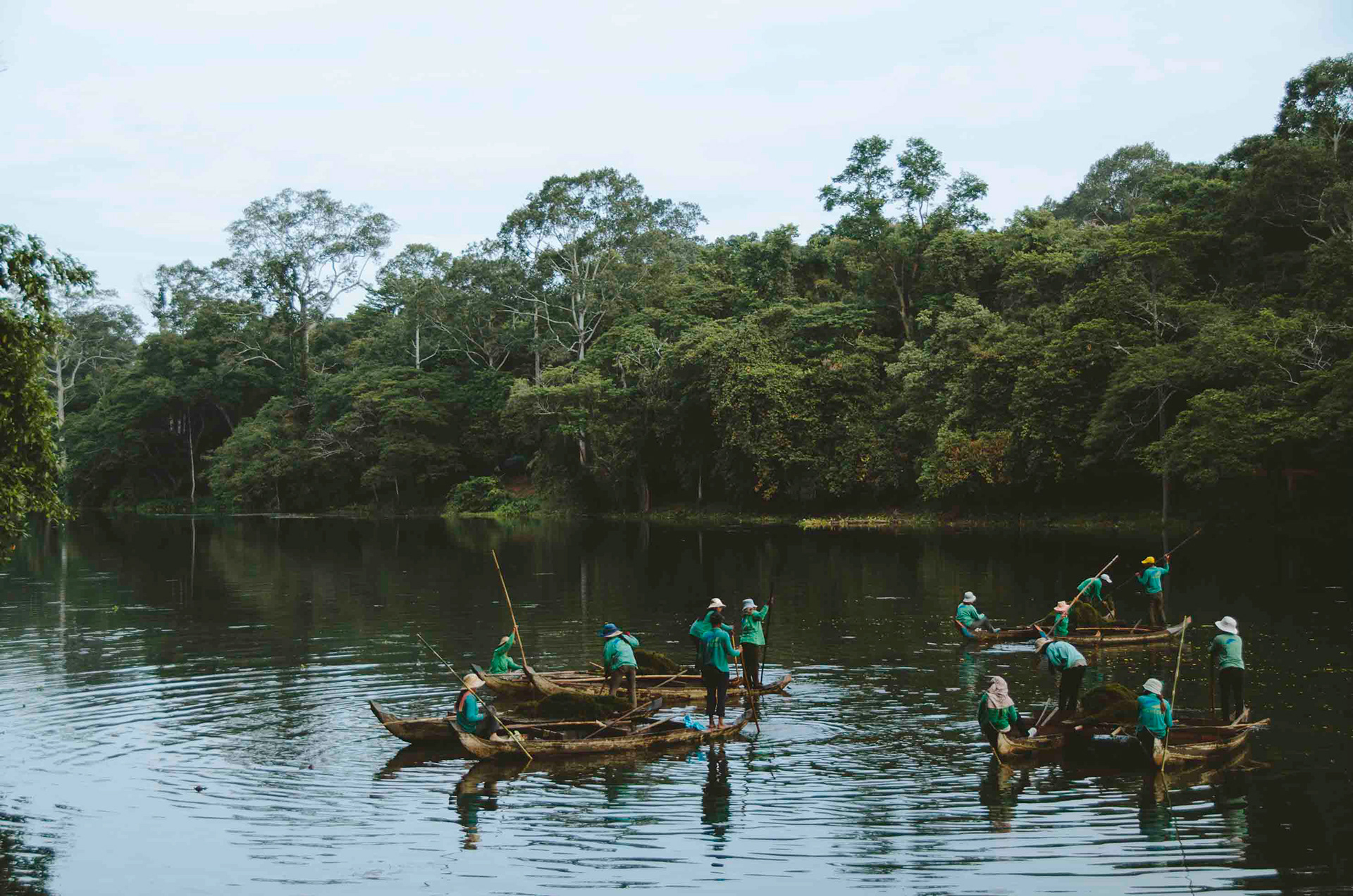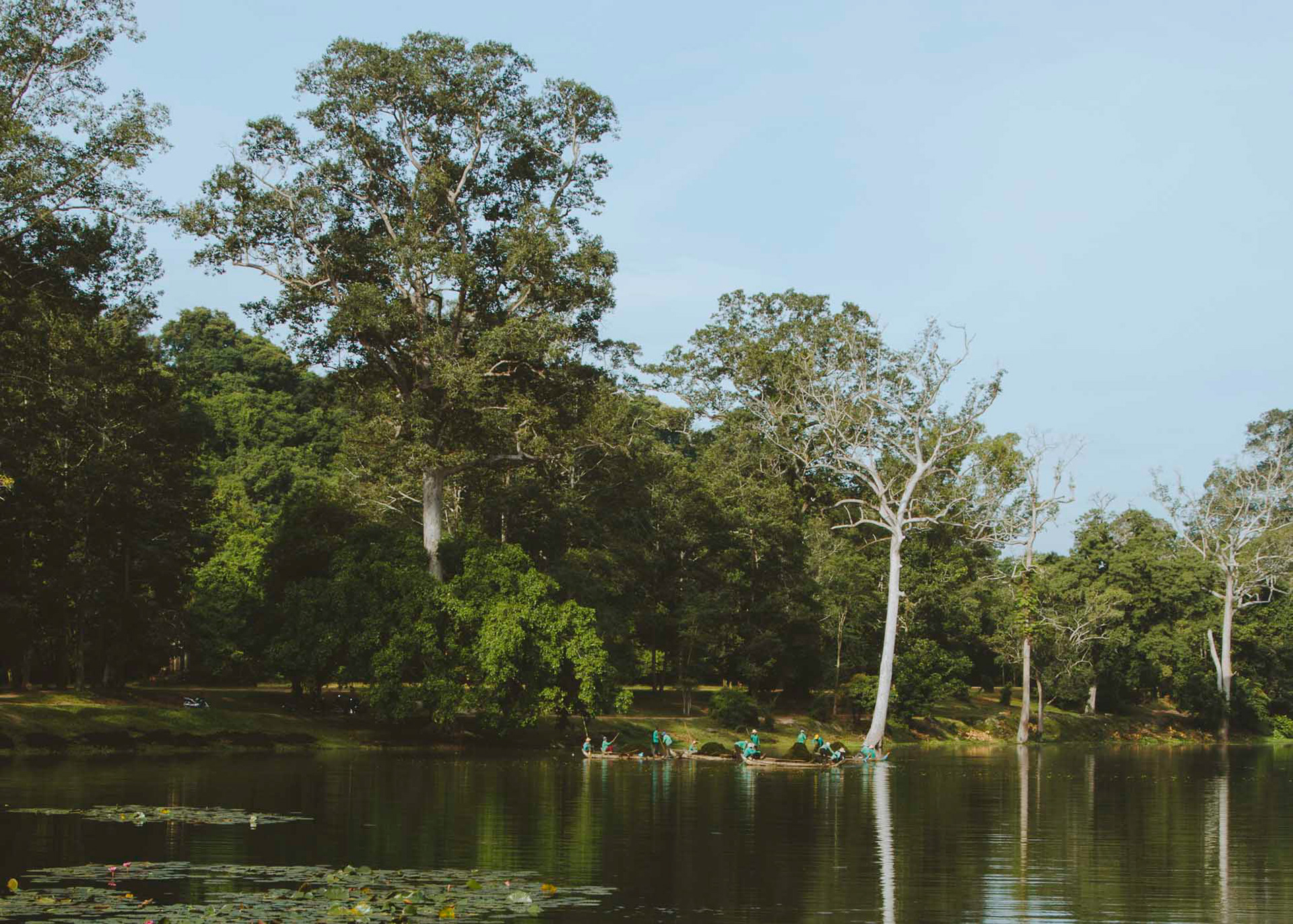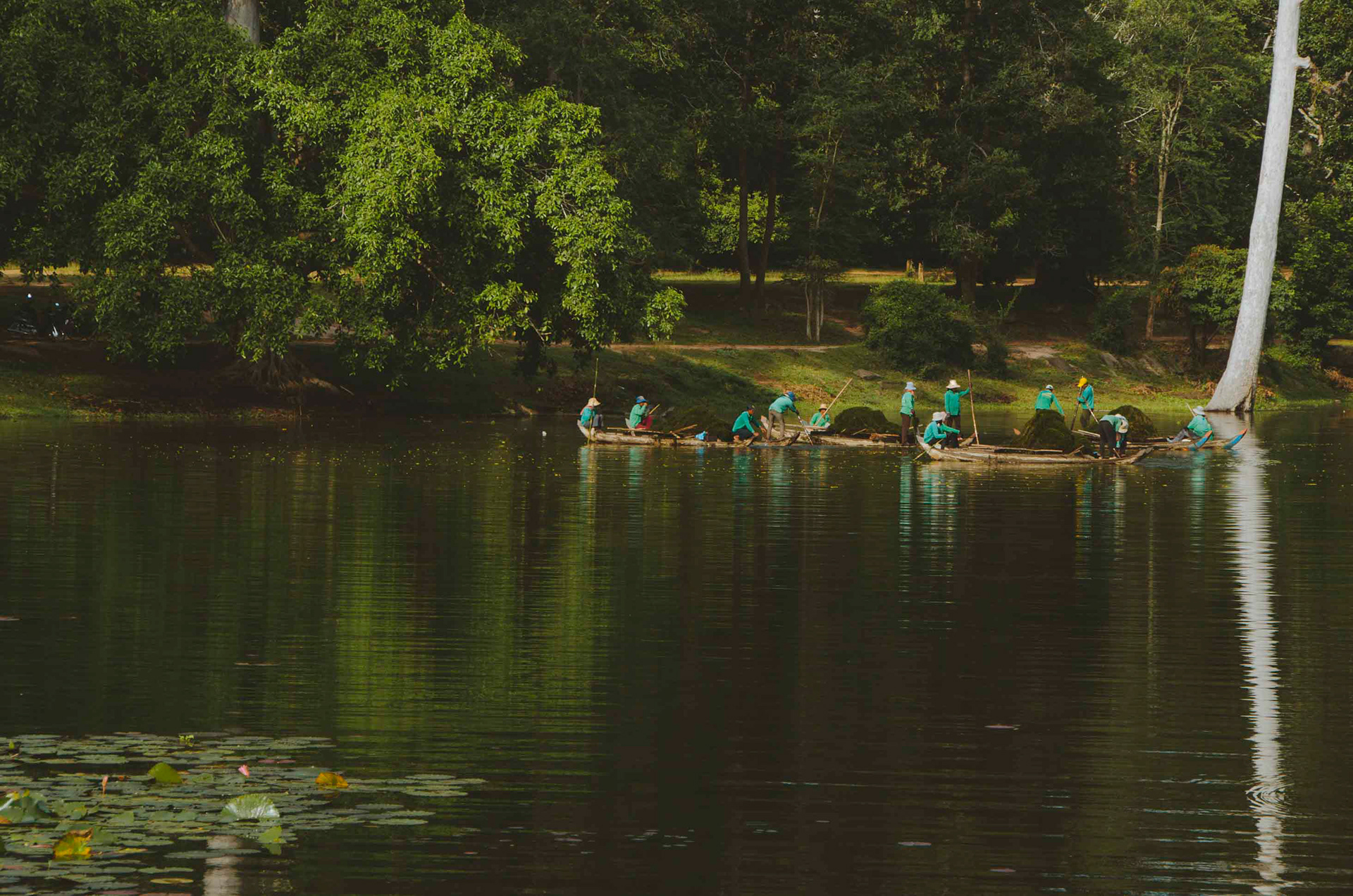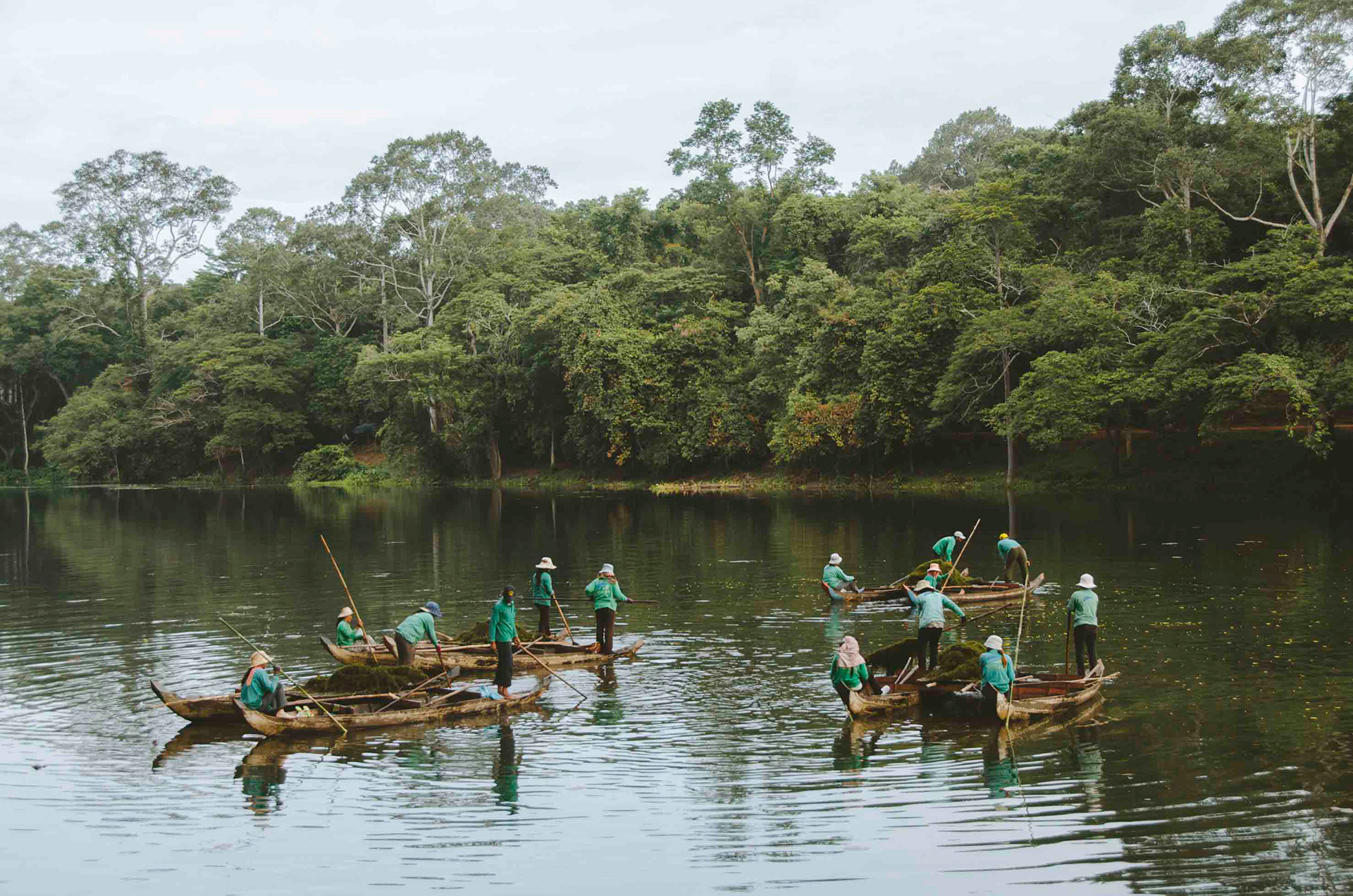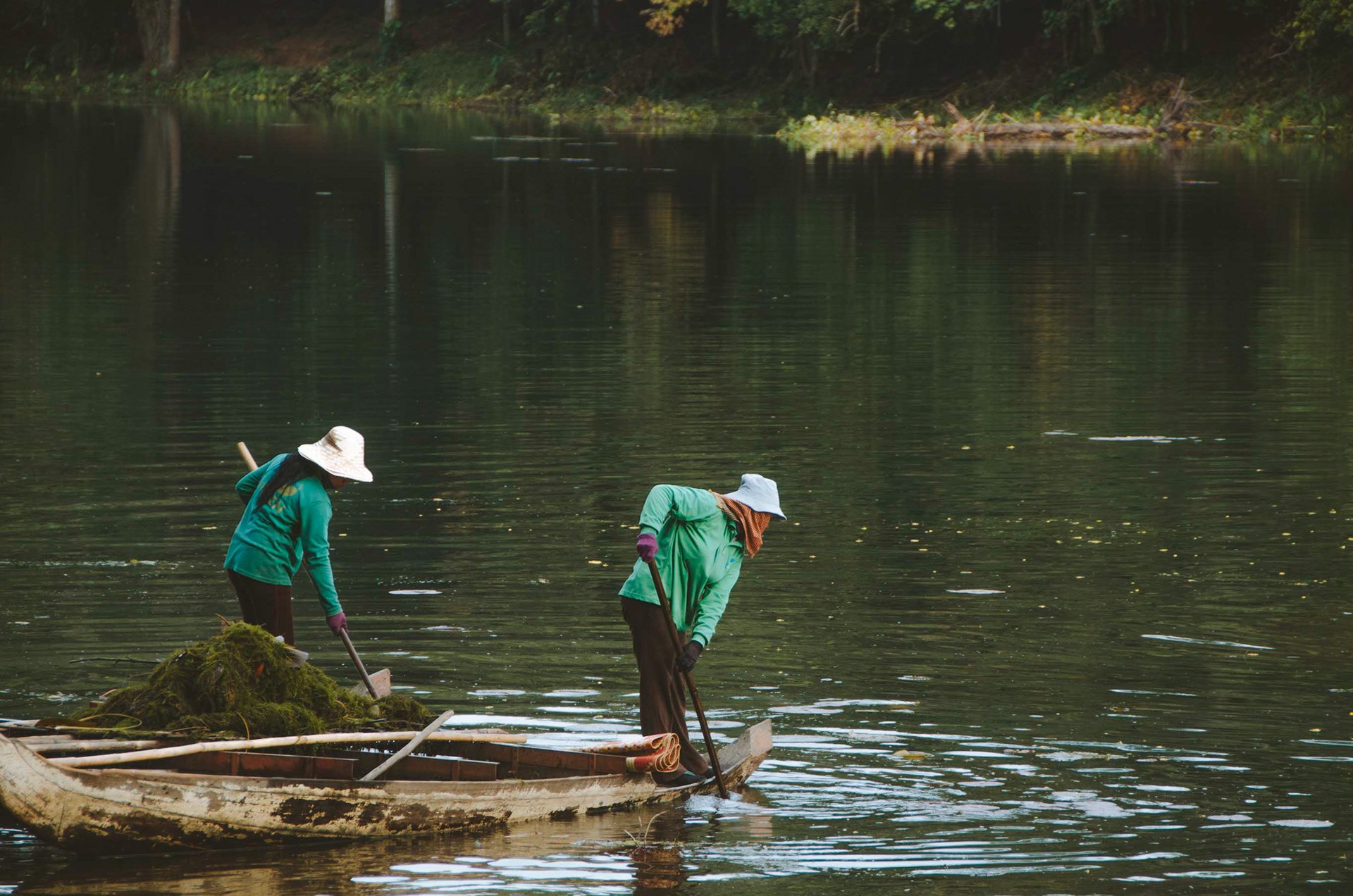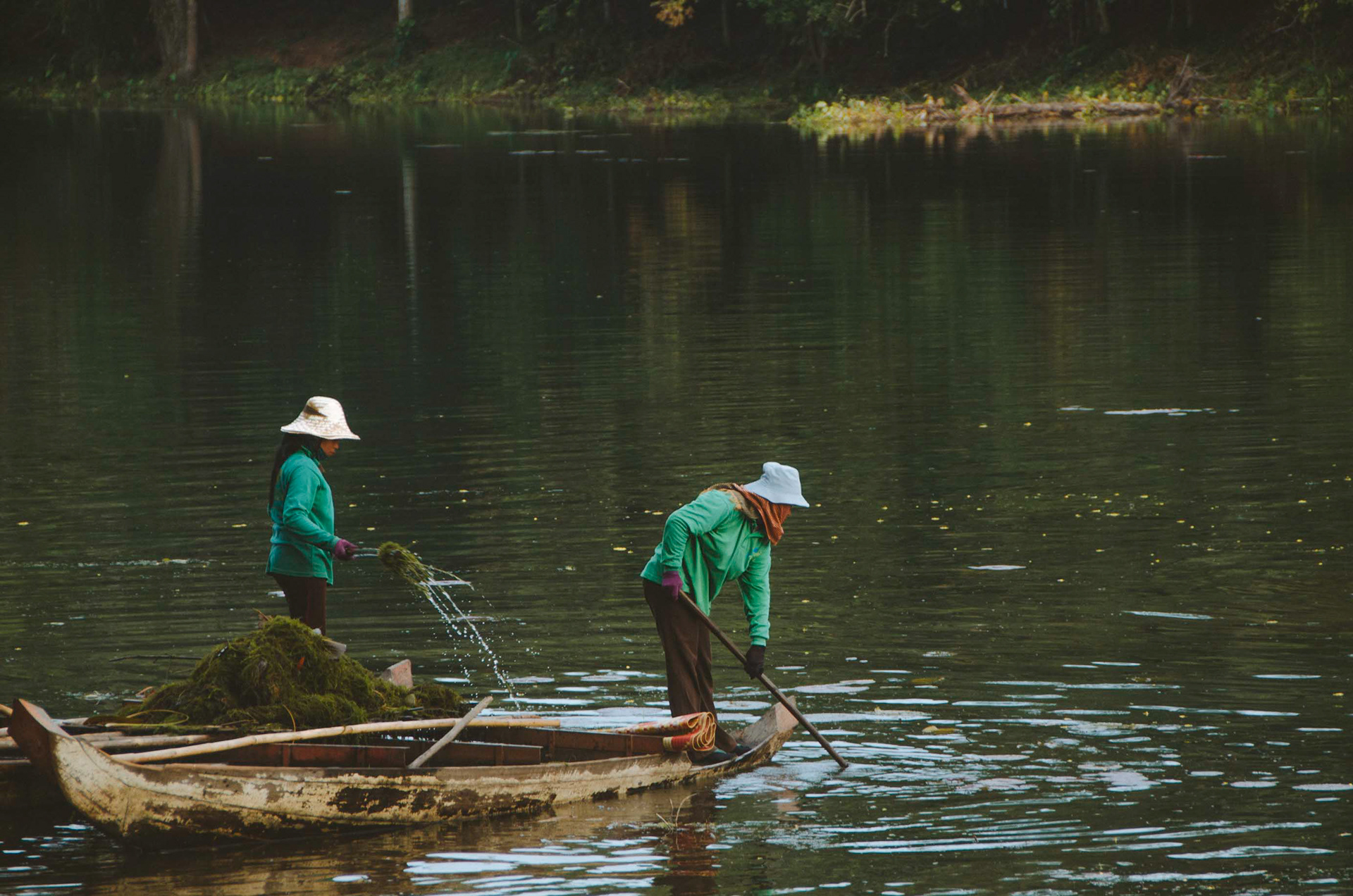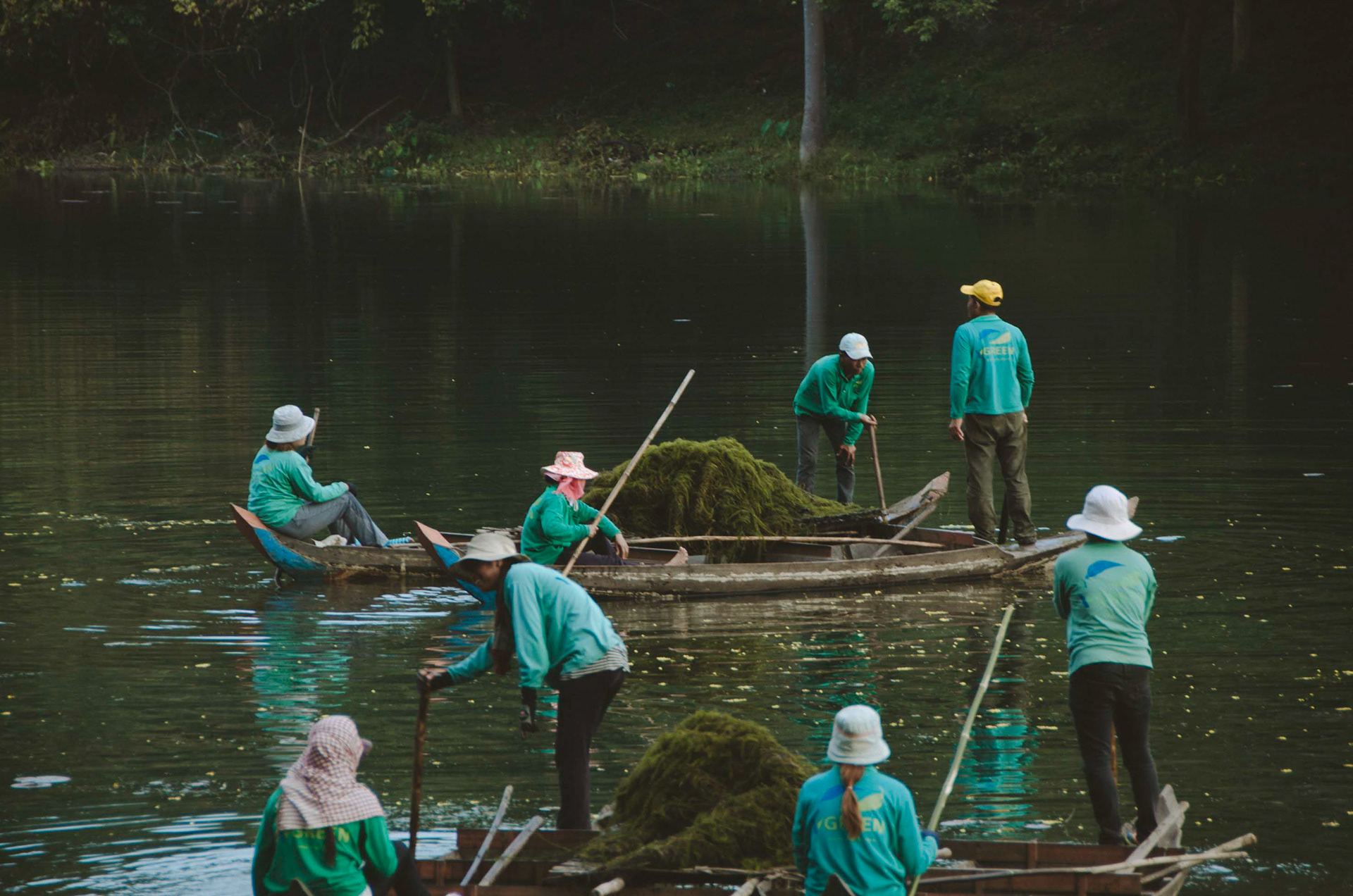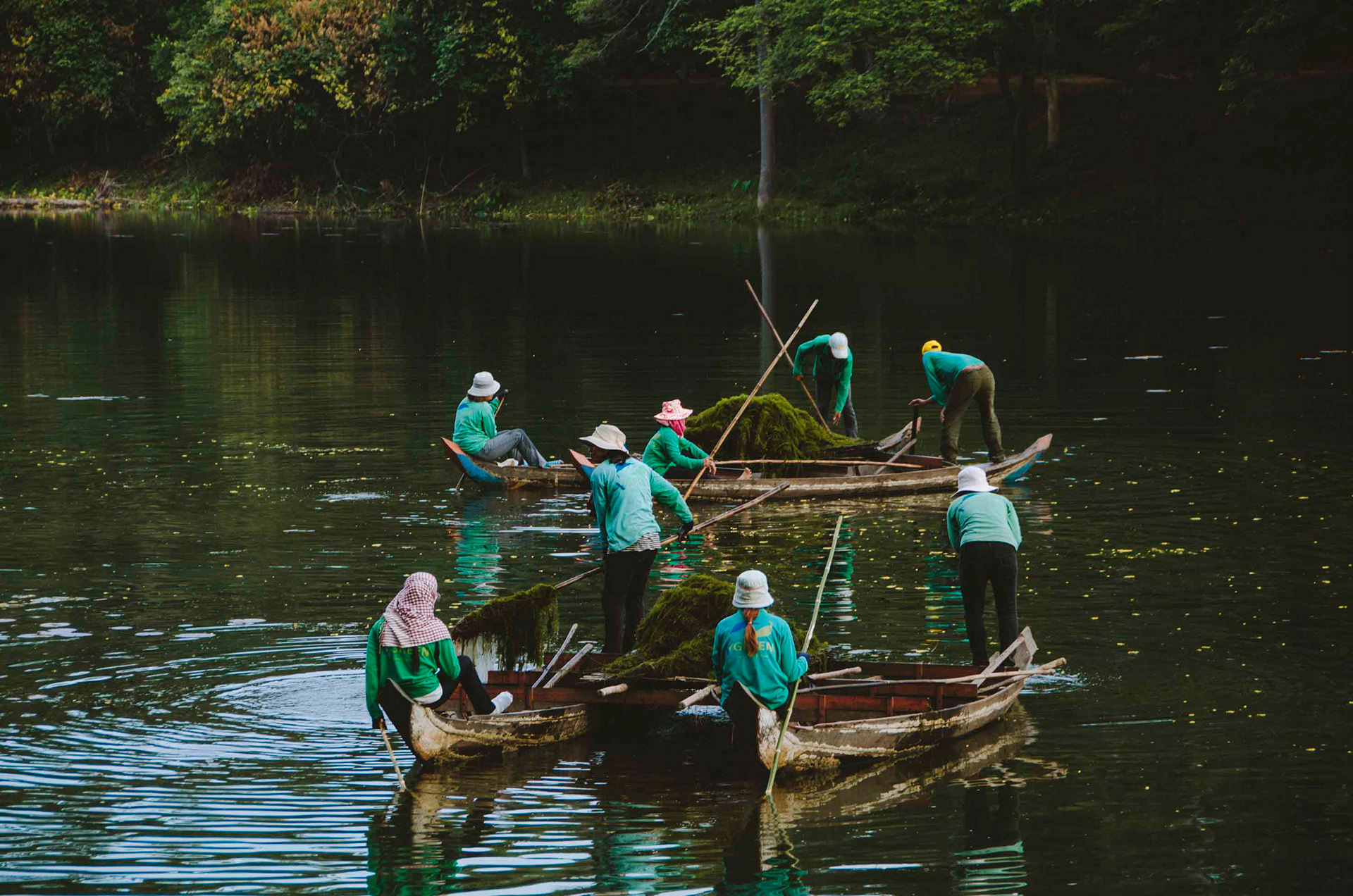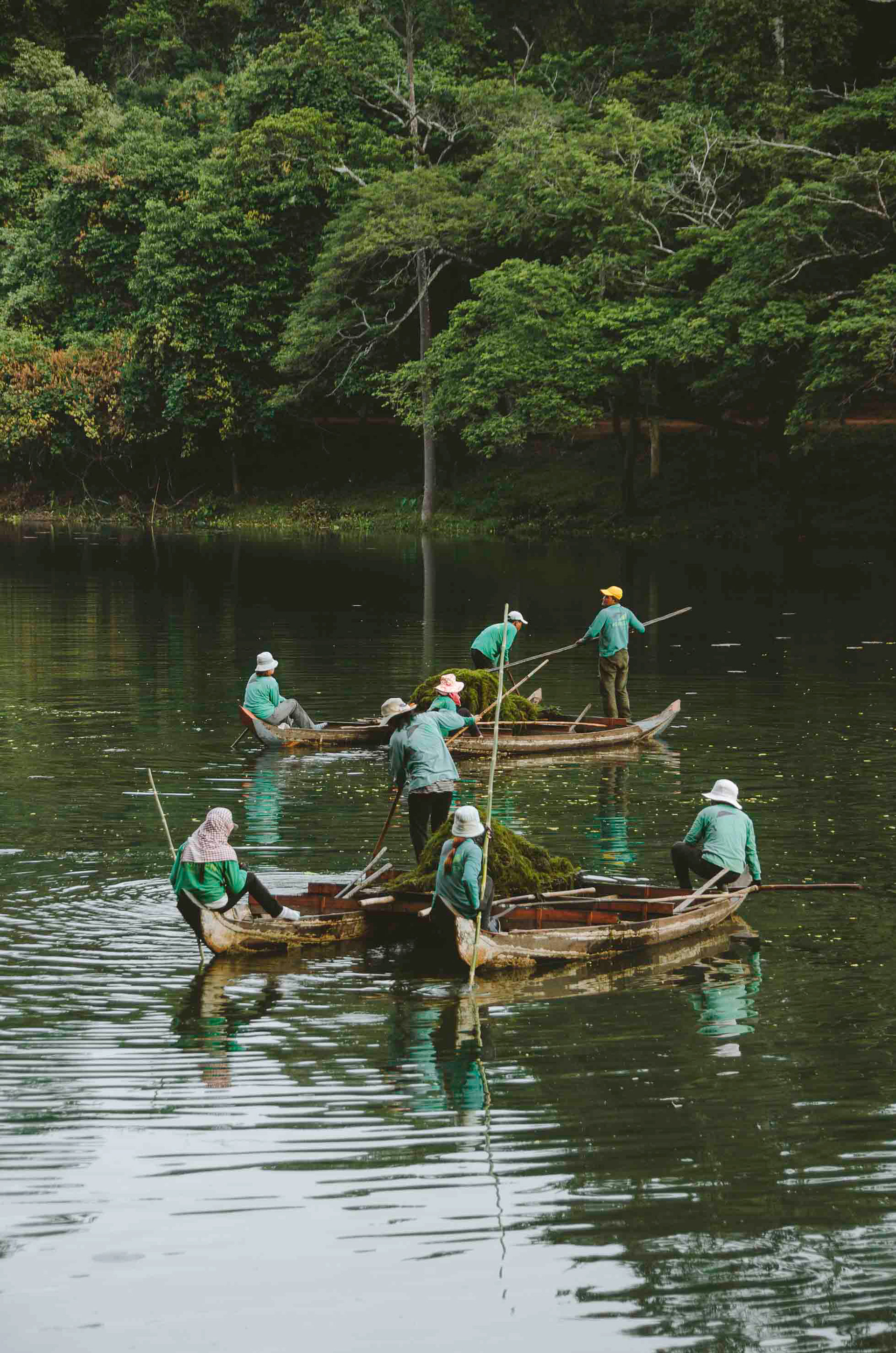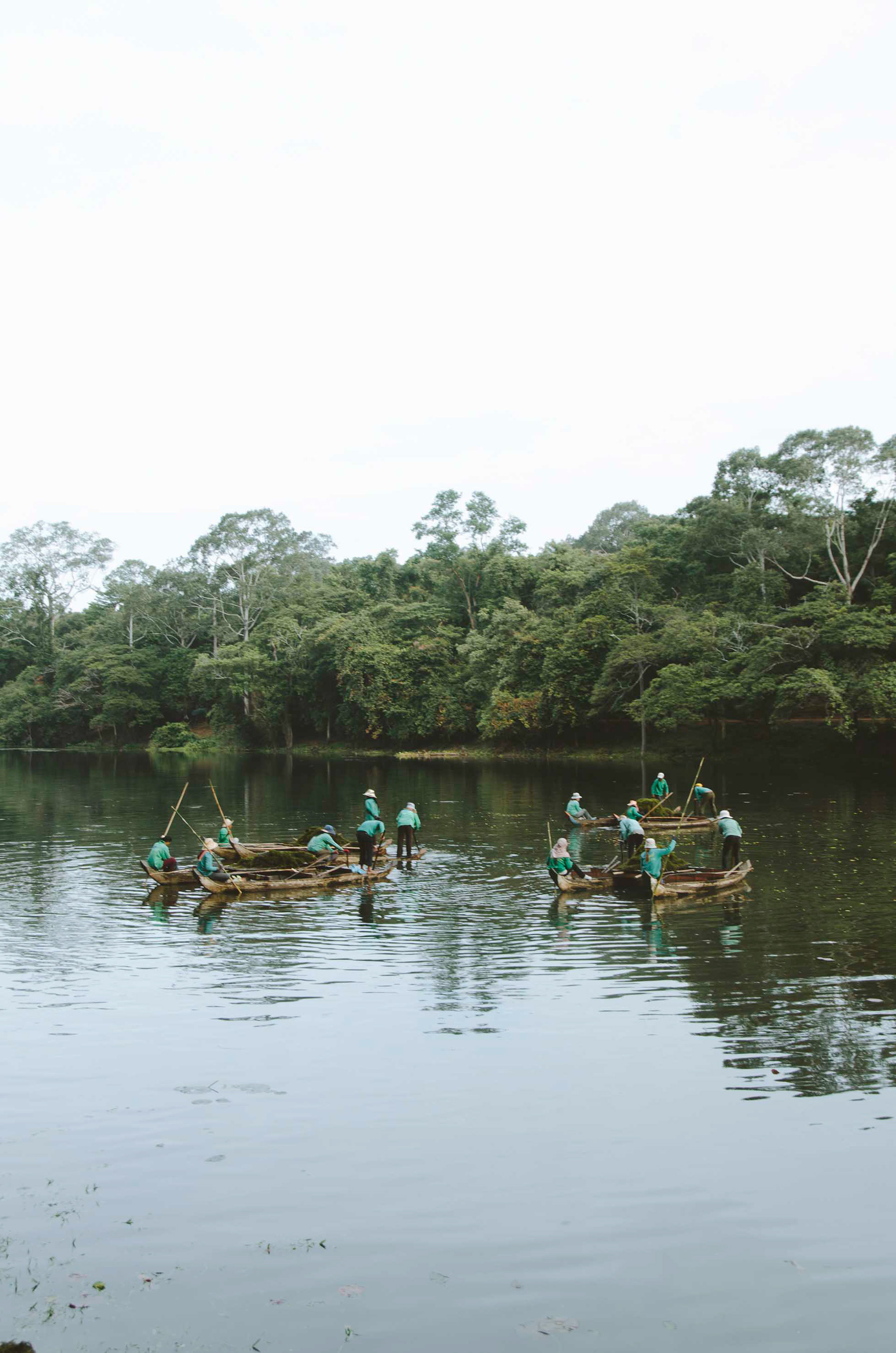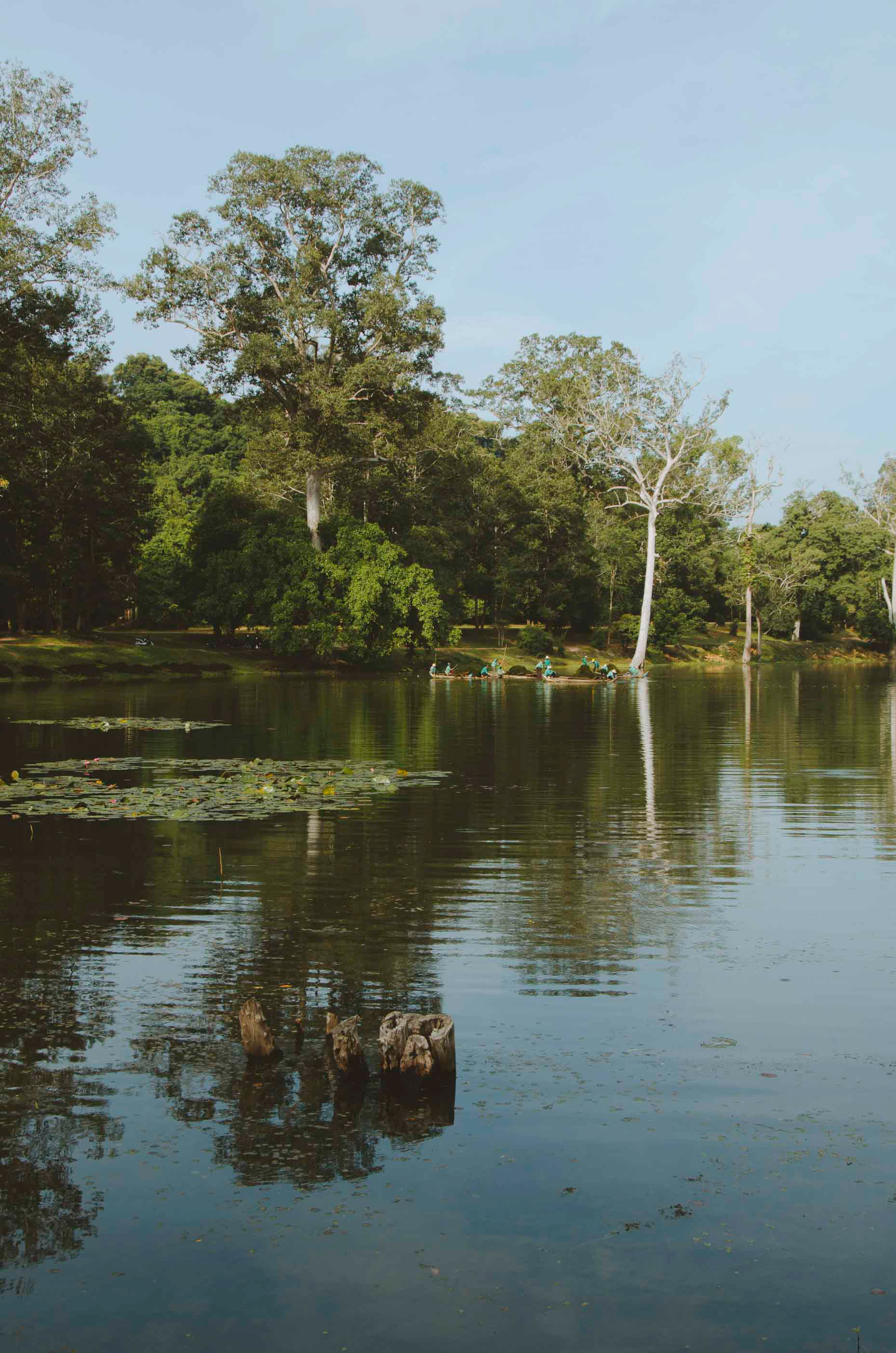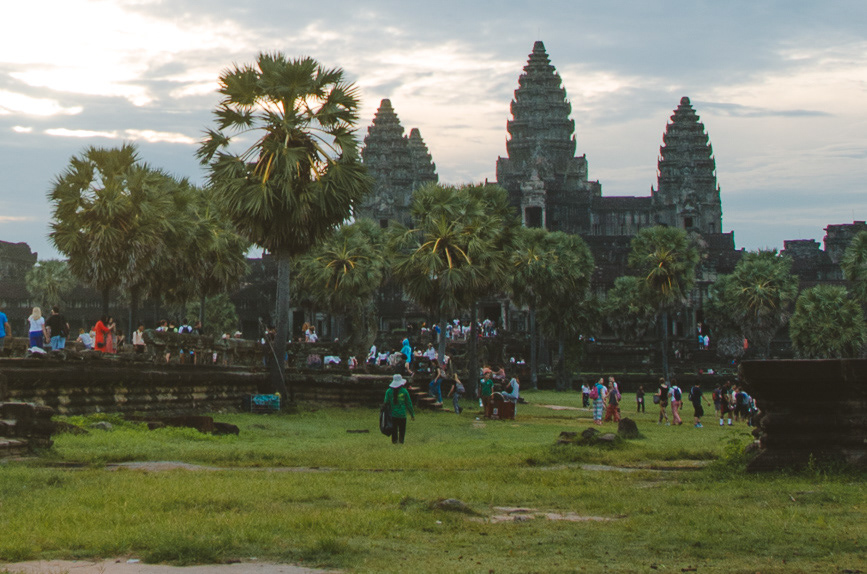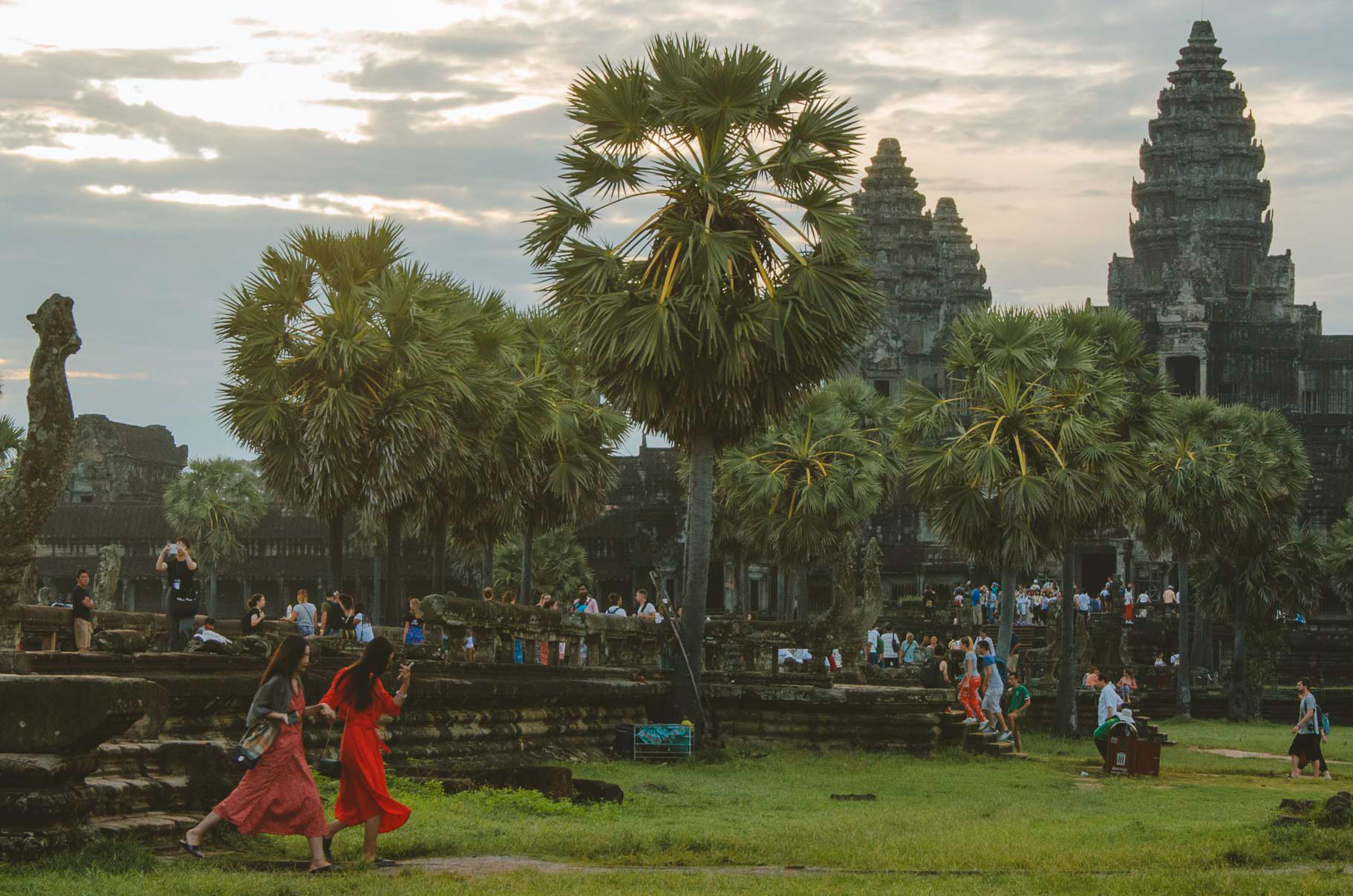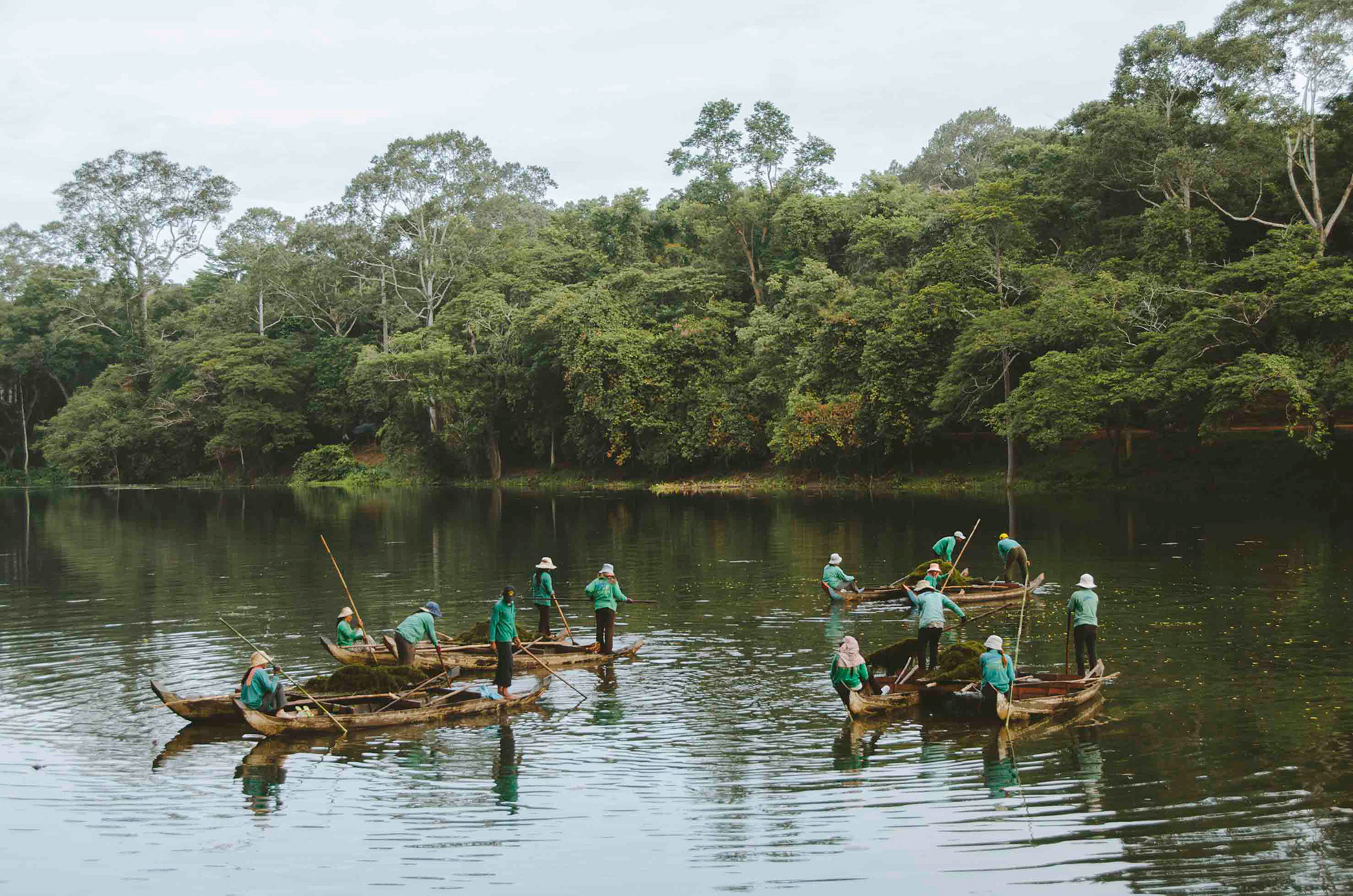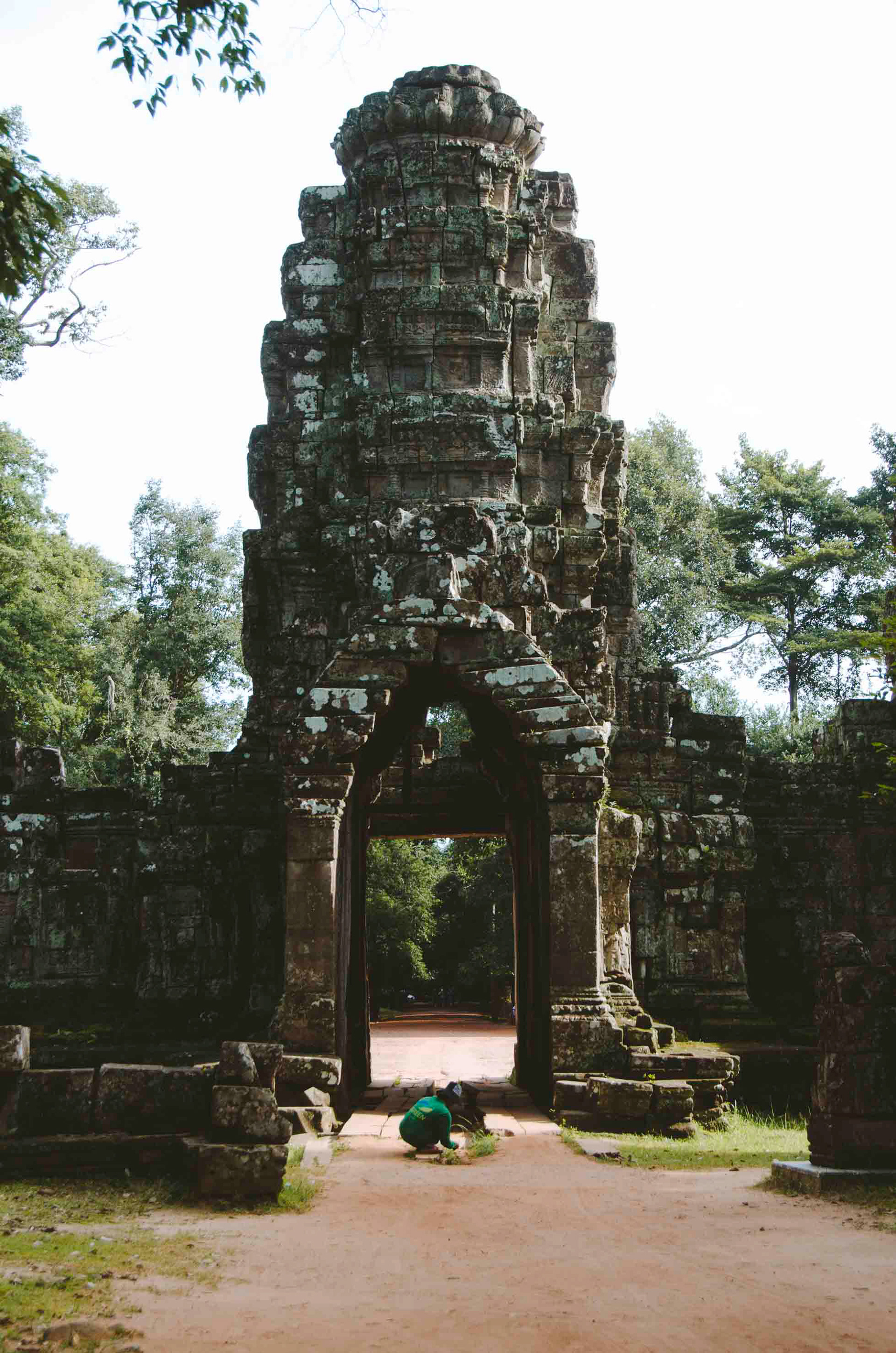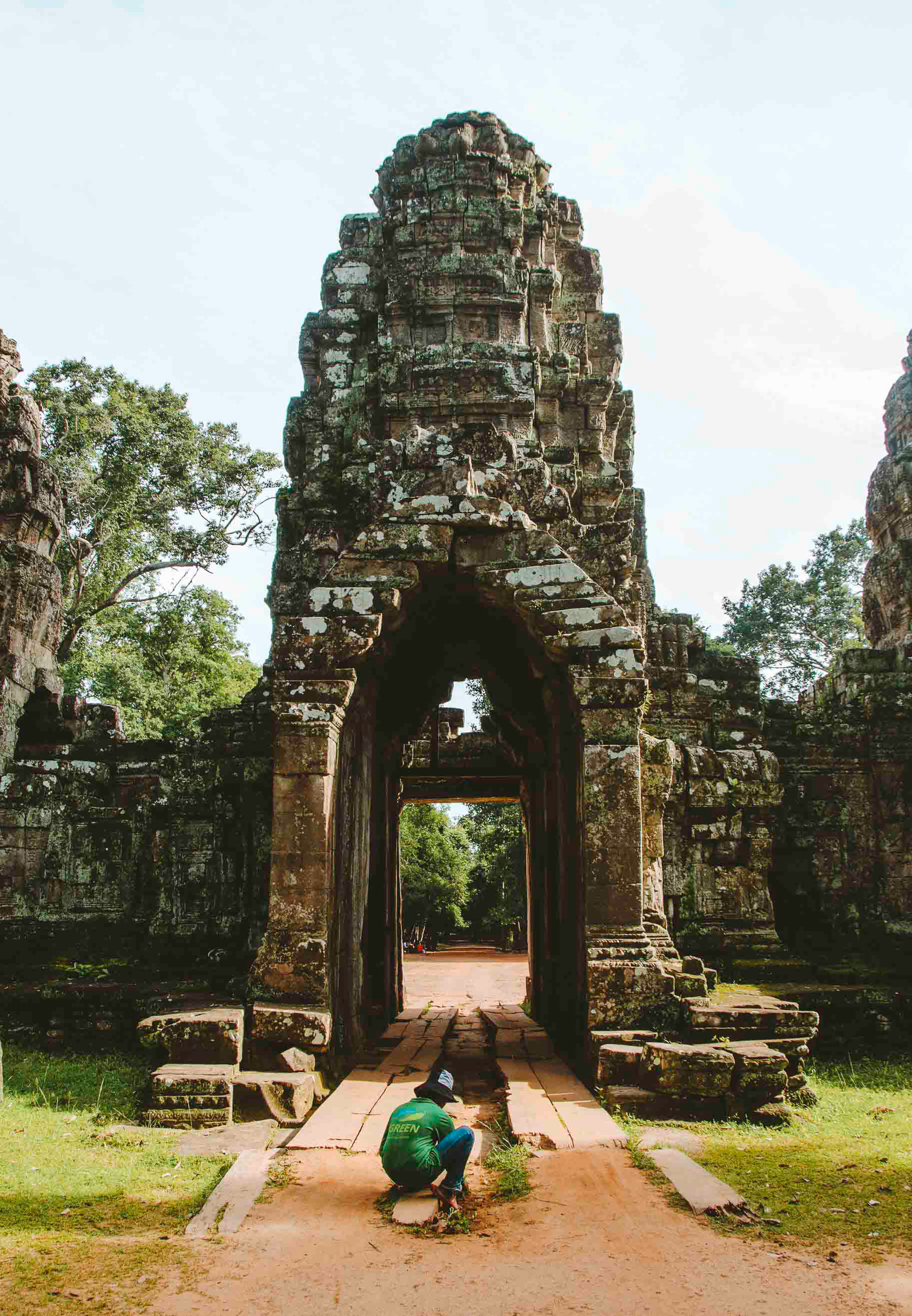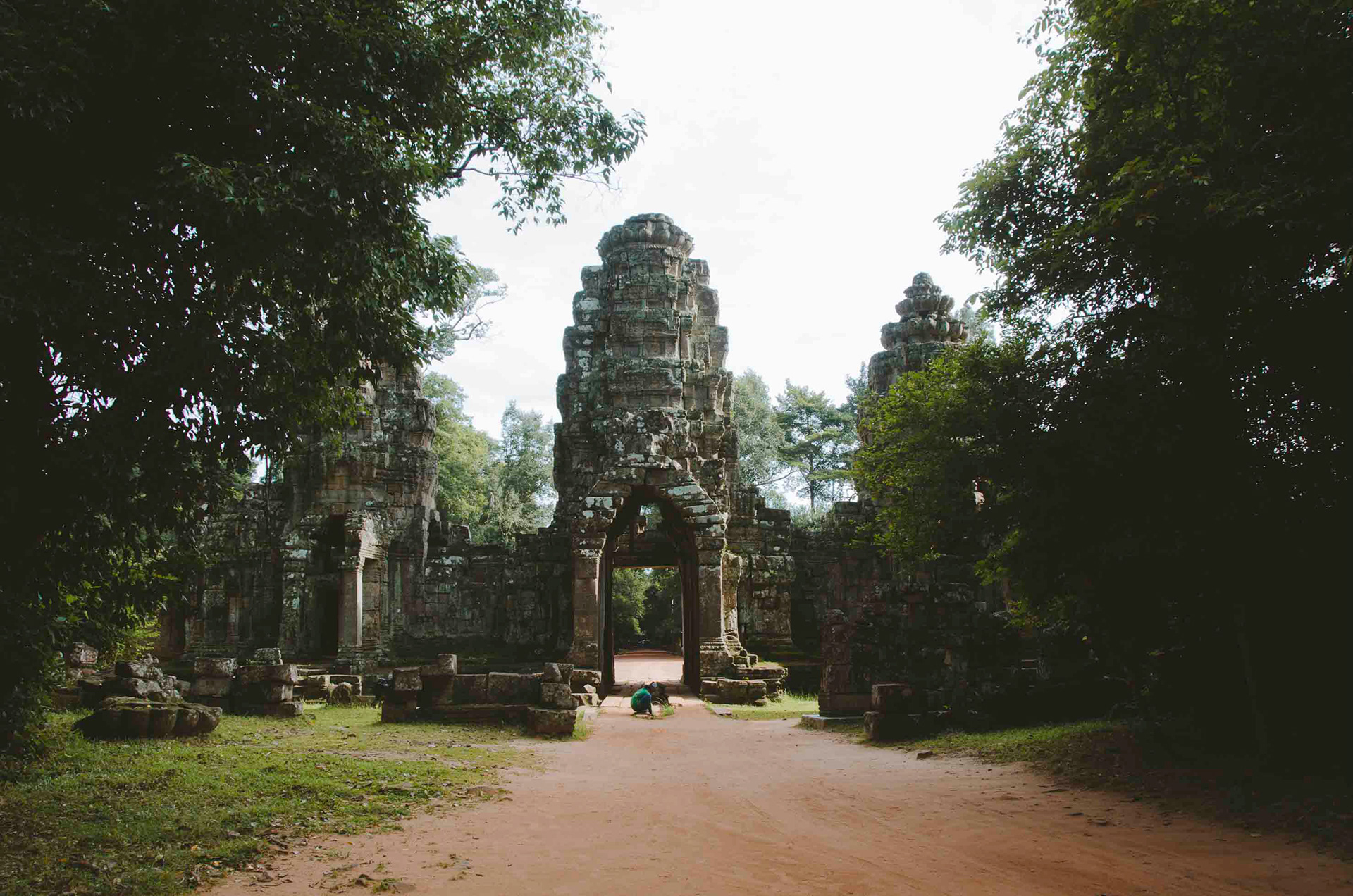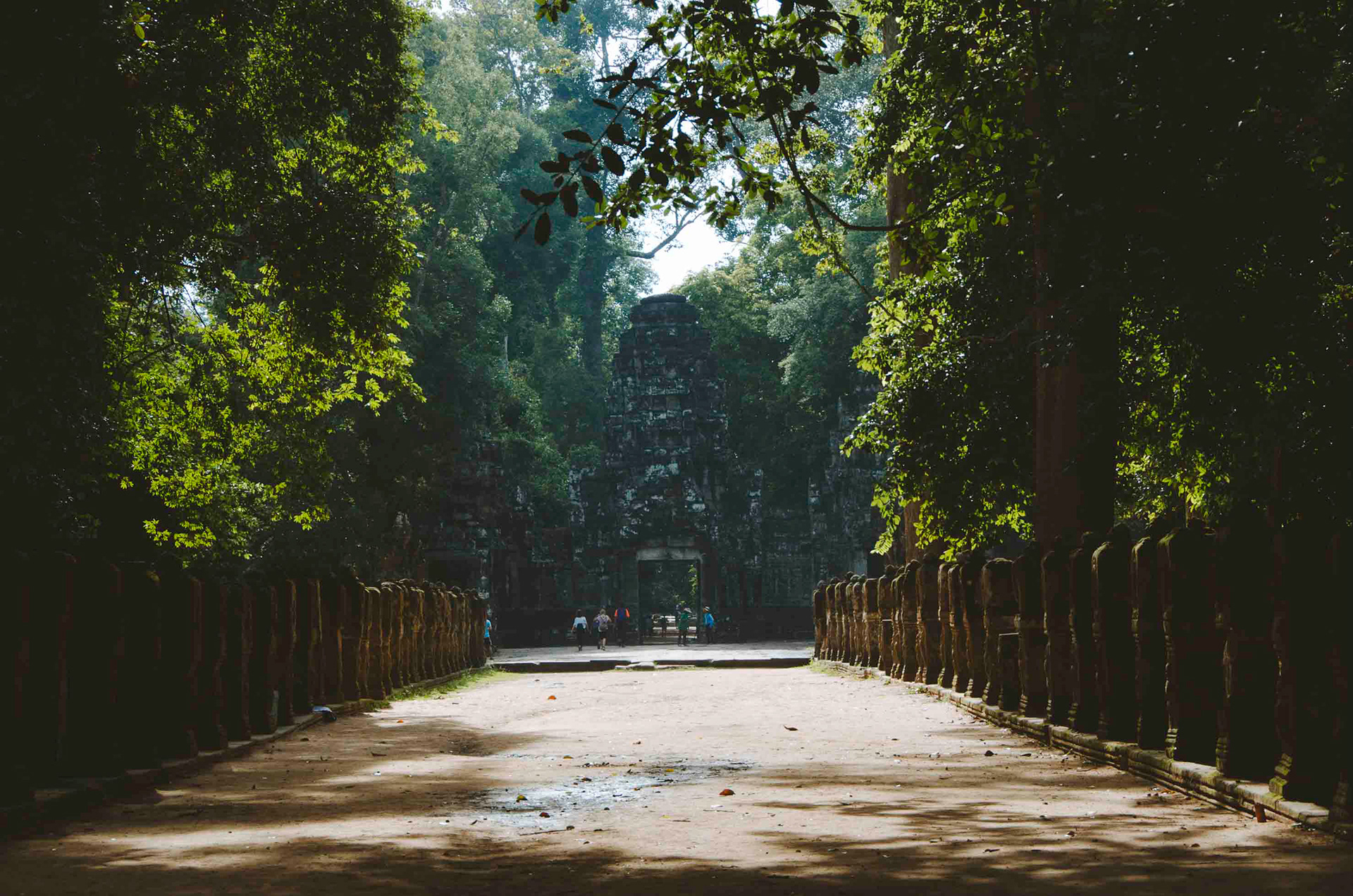"If you ever been to Angkor Wat you probably walked passed them, without even noticing them."
Angkor wat has an army of devoted personnel that takes care of this world heritage site.
If you ever been to Cambodia you may have noticed that the trash management can be problematic in some parts of the country.
The fast growing economy and plastic use go hand in hand with the ever growing littering that takes place in Cambodia and other countries of southeast Asia. Although recently more and more people are being mindful of their impact on the environment.
Anyway, in Cambodia trash is a problem. It’s estimated that Cambodians use at least 2000 plastic bags per year. Rivers are filled with trash almost every landfill you might stumble across are too. This problem mainly comes from education. It’s not that Cambodian people are littering because they want to pollute the earth but rather because they don’t understand the impact they have when they throw their trash on the ground. To be fair, most of the world is just realizing those things as well. With such fast developing countries like Southeast Asia, environmental work is usually set in the background until the economical growth slows down and the economy is strong enough to tackle such issues. Because yes, the environment is a long game. The gains aren’t economical yet it demands a lot of economical resources. It's an investment for the future.
It is hard to invest in the future when you can barely invest in the present. So as long as these countries experience strong economic growth, environmental issues will have to be put in the background. The reassuring part is that people will still fight to keep the issues in the public debate.
Angkor wat in Cambodia is the exact opposite of what you can experience regarding trash, in Cambodia. Angkor wat an archeological site and world heritage site, understood the importance of maintaining a proper appearance in the perimeter of the park. The difference between Angkor and Phnom Penh, even the difference between Phnom Penh and Siem Reap is staggering.
No trash can be seen in Angkor wat. This was so visually shocking that I set out to find out who was responsible for such an amazing feat. Instead of taking photographs of temples (that I had already seen) I focused on documenting the people that made this possible.
Once I asked myself that question, Lots of people, mostly women, wearing green shirts with “V-green” written on the back started popping up in my field of vision. I started to notice them everywhere. Their discretion is unmatched and their uniform somehow makes them blend in the landscape perfectly.
So if you went to Angkor Wat you probably walked past them without even noticing them.
So I believe it is important to show who is responsible for maintaining such an important site.
The company in charge of cleaning the site is V-green. The company counts roughly 550 workers, most of them women. Days are long, from 6am to 5pm, under the hot dry Cambodian sun or under the monsoon rains, the team of workers go on to pick up whatever doesn’t belong in the landscape.
From the side of the road, to rivers and lakes and even inside the temples these workers will leave no trash in their passage. The work they do on a regular basis is meticulous and gargantuan. Their pay does not represent at all the work that they do on this site and the impact they have on Siem Reap.
Wages are between 80 and 140 dollars a month for employees of V-green. The wages used to be fixed at 80 dollars a month, they recently managed to raise them up to 140 dollars for some.
These cleaning superheroes have indirectly made Siem Reap one of the cleanest big cities in Cambodia by being paid less than 200 dollars a month. Almost like the standing of Angkor wat influenced people on how to take care of their environment. Clearly showing that the trash problem in southeast Asia is purely educational. When given an example, even if that exemple exists only because it makes an economical sense, people will follow it at their level.
The sad reality is that in order to focus on environmental issues, governments still try to find a economical gain from tackling such issues, thankfully Angkor has an important economical value for Cambodia and hopefully will set the standard when the country is ready to tackle environmental issues deeper.

